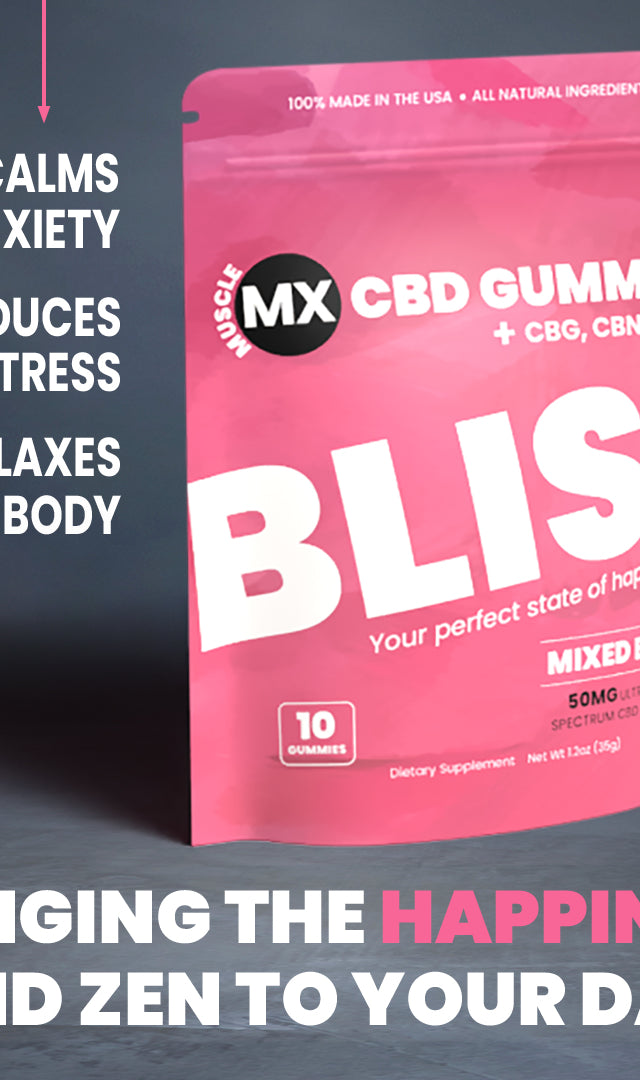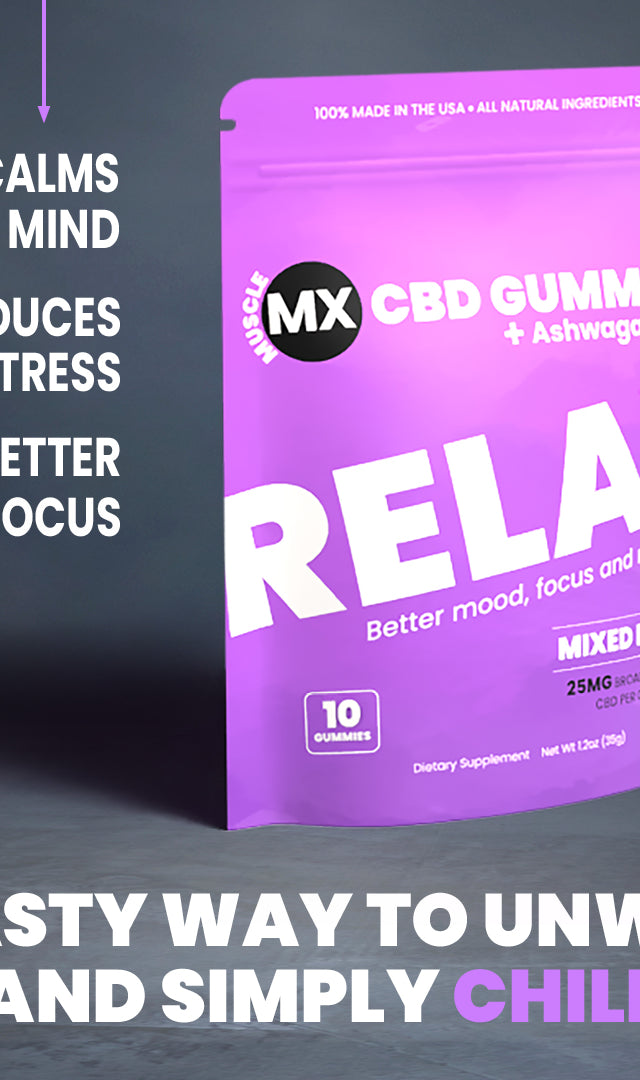10 Methods to Reduce Stress Naturally
No doubt, stress is an inevitable part of life, affecting everyone differently. You see, stress is a natural response to challenges or demands, which can come from various sources such as work, relationships, or personal responsibilities. It's a psychological and physiological reaction that can impact both mental and physical health. There are two types of stress that people could have:
-
Acute Stress: Short-term stress that arises from specific events or situations. It usually resolves quickly once the situation is over.
-
Chronic Stress: Long-term stress that persists over an extended period, often due to ongoing challenges or situations. It can have more serious health implications.
Both types of stresses essentially lead to these specific category symptoms:
-
Physical: Headaches, muscle tension, fatigue, upset stomach, or sleep disturbances.
-
Emotional: Anxiety, irritability, depression, or feeling overwhelmed.
-
Behavioral: Changes in appetite, procrastination, or withdrawal from social activities.
So, managing stress effectively often involves a combination of strategies tailored to an individual's needs and circumstances, which is what we're going to be discussing here today.
Why Exactly Should People Incorporate Methods into Reducing Stress?
Incorporating methods to reduce stress is crucial for several reasons, as the following can significantly benefit both physical and mental health, leading to a more harmonious and enjoyable life:
-
Mental Health: Chronic stress can lead to mental health issues like anxiety and depression. Stress-reduction techniques help maintain mental well-being and emotional balance.
-
Physical Health: Long-term stress can contribute to physical health problems, such as cardiovascular disease, high blood pressure, and weakened immune system. Managing stress can help reduce the risk of these conditions.
-
Improved Sleep: Stress often disrupts sleep patterns. By reducing stress, individuals can improve their sleep quality and overall restfulness.
-
Enhanced Cognitive Function: High stress levels can impair concentration, memory, and decision-making abilities. Stress management can enhance cognitive functions and productivity.
-
Better Relationships: Stress can strain relationships and lead to conflict. Techniques for reducing stress can help improve communication and maintain healthy relationships.
-
Increased Resilience: Regular stress-reduction practices build resilience, enabling individuals to handle future stressors more effectively and bounce back more quickly from challenges.
-
Overall Quality of Life: Managing stress leads to a more balanced and fulfilling life, improving overall happiness and life satisfaction.
Are there wrong ways to reduce stress?
Before we cover the proper methods to reducing stress naturally, you need to know that there are definitely ineffective or even harmful ways to try to reduce stress. Some of these methods can temporarily relieve stress but might lead to more problems down the road. Here are several examples:
-
Substance Abuse: Using drugs, alcohol, or nicotine to cope with stress can lead to addiction, health problems, and even greater stress.
-
Overeating or Unhealthy Eating: Stress eating or using food as a comfort can result in weight gain and other health issues, which can exacerbate stress.
-
Avoidance: Ignoring problems or procrastinating can lead to increased stress as issues accumulate and become more difficult to handle.
-
Over-reliance on Technology: Spending excessive time on social media or playing video games might offer a temporary escape but can lead to more stress, especially if it leads to poor sleep or decreases face-to-face interactions.
-
Aggressive Behavior: Taking out frustration on others or engaging in aggressive behavior can damage relationships and increase stress.
-
Over-scheduling: Keeping overly busy to avoid dealing with stressors can lead to burnout and more stress.
What are the Best Methods Then to Reduce Stress Naturally?
While modern medicine offers numerous solutions, many people seek natural methods to reduce stress and improve their well-being. Before we cover 10 effective and natural ways to manage and alleviate stress, it's important overall to find healthy and constructive ways to manage stress, such as through physical activity, mindfulness practices, or talking to a counselor or therapist. These methods can help with stress relief and anxiety management, addressing both the physical and emotional aspects of stress.
Method #1: Mindfulness Meditation
Mindfulness meditation is a powerful practice that involves focusing on the present moment. This technique helps you become aware of your thoughts, emotions, and sensations without judgment, and can be an effective calming technique for stress relief.
How to Practice:
- Find a quiet, comfortable place to sit or lie down.
- Close your eyes and take deep breaths.
- Focus on your breath and the sensation of breathing in and out.
- When your mind wanders, gently bring your focus back to your breath.
Benefits:
- Reduces the activity in the brain's stress centers.
- Promotes emotional regulation and mental clarity.
- Enhances self-awareness and overall well-being.
- Improves breath focus and controlled breathing.
Method #2: Physical Exercise
Engaging in regular physical activity is one of the most effective ways to combat stress. Exercise increases the production of endorphins, the body's natural mood elevators, and promotes physical relaxation.
Types of Exercise:
- Aerobic exercises like walking, jogging, cycling, and swimming.
- Strength training using weights or resistance bands.
- Yoga and Pilates, which combine physical movement with mindfulness.
Benefits:
- Improves mood and energy levels.
- Enhances sleep quality and cognitive function.
- Boosts confidence and resilience against stress.
- Induces physiological changes that help manage the stress response.
Method #3: Adequate Sleep
Quality sleep is crucial for maintaining mental and physical health. Lack of sleep can exacerbate stress, while good sleep hygiene can help keep it at bay.
Tips for Better Sleep:
- Maintain a regular routine, going to bed and waking up at the same time every day.
- Create a relaxing bedtime routine, such as reading or taking a warm bath.
- Keep your bedroom cool, dark, and quiet.
Benefits:
- Enhances mood and concentration.
- Reduces irritability and fatigue.
- Supports overall health and well-being.
- Helps regulate the body's stress response.
Method #4: Healthy Eating
A balanced diet can significantly influence your stress levels. Consuming nutrient-rich foods supports brain function and stabilizes mood.
Foods to Include:
- Fresh fruits and vegetables.
- Whole grains, lean proteins, and healthy fats.
- Foods rich in omega-3 fatty acids, such as fish and flaxseeds.
Benefits:
- Stabilizes blood sugar levels, preventing mood swings.
- Provides essential nutrients that support brain health.
- Reduces inflammation and boosts immune system functioning.
Method #5: Deep Breathing Exercises
Deep breathing exercises are a simple yet effective way to manage stress. They help activate the body's relaxation response, lowering heart rate and blood pressure. These breathing techniques for stress can be particularly helpful in managing anxiety.
How to Practice:
- Sit or lie down in a comfortable position.
- Inhale deeply through your nose, allowing your abdomen to expand (belly breathing).
- Exhale slowly through your mouth, emptying your lungs completely.
- Repeat for several minutes, focusing on breath control.
Benefits:
- Promotes relaxation and reduces tension.
- Improves oxygen flow to the brain.
- Enhances focus and mental clarity.
- Helps manage shallow breathing associated with anxiety.
Advanced Breathing Techniques:
- Equal time breathing: Inhale and exhale for the same count.
- Modified lion's breath: Inhale through the nose, then exhale forcefully through the mouth with tongue out.
- Diaphragmatic breathing: Focus on expanding the diaphragm rather than the chest.
Method #6: Spending Time in Nature
Nature has a calming effect on the mind and body. Spending time outdoors can reduce stress and improve overall mood.
Activities to Try:
- Walking in a park or hiking in the woods.
- Gardening or spending time in a backyard.
- Visiting a beach, lake, or any natural setting.
Benefits:
- Lowers cortisol levels, the body's primary stress hormone.
- Increases feelings of happiness and well-being.
- Encourages physical activity and social interaction.
Method #7: Journaling
Writing down your thoughts and feelings can be a therapeutic way to manage stress. Journaling helps you process emotions and gain insights into your stressors.
How to Start:
- Choose a notebook or digital platform to write on.
- Set aside a few minutes each day to write about your experiences and feelings.
- Reflect on positive events and what you are grateful for.
Benefits:
- Clarifies thoughts and feelings.
- Identifies patterns and triggers of stress.
- Provides a sense of control and perspective.
Method #8: Social Connections
Maintaining strong social connections is vital for emotional support and stress management. Spending time with friends and family can provide comfort and a sense of belonging.
Ways to Connect:
- Schedule regular meetups with loved ones.
- Join clubs, groups, or activities that interest you.
- Reach out to friends and family through calls or messages.
Benefits:
- Reduces feelings of loneliness and isolation.
- Provides emotional support and understanding.
- Encourages sharing and problem-solving.
Method #9: Aromatherapy
Aromatherapy involves using essential oils to promote relaxation and well-being. Certain scents can have a calming effect on the mind and body.
Popular Essential Oils:
- Lavender, known for its relaxing properties.
- Chamomile, which can soothe and calm the mind.
- Eucalyptus, known for its refreshing and invigorating scent.
How to Use:
- Add a few drops of essential oil to a diffuser.
- Mix with a carrier oil for a calming massage.
- Add to a warm bath for a relaxing soak.
Benefits:
- Enhances mood and relaxation.
- Reduces anxiety and tension.
- Improves sleep quality.
Method #10: Creative Activities
Engaging in creative activities can be a wonderful outlet for stress. Whether it's painting, drawing, crafting, or playing music, creative expression allows you to focus your mind and relax.
Ideas to Explore:
- Take up a new hobby like knitting, pottery, or photography.
- Join a class or workshop to learn new skills.
- Dedicate time each week to practice and enjoy your chosen activity.
Benefits:
- Provides a sense of accomplishment and satisfaction.
- Diverts attention from stressors.
- Encourages self-expression and creativity.
Taking CBD as a Possible Method to Help Reduce Stress
Among the various methods we covered that people use to cope with stress, cannabidiol (CBD) has also gained significant attention as a natural option. Derived from the hemp plant, CBD offers potential benefits without the psychoactive effects commonly associated with THC, another compound found in cannabis.
Many individuals are turning to CBD as a way to manage stress, due to its potential blissful properties. Unlike traditional methods that may involve pharmaceuticals or other substances, CBD is appealing for its natural origin and minimal side effects.
Cannabidiol interacts with the body's endocannabinoid system (ECS), which impacts various physiological processes, including mood and stress responses. In fact, some studies suggest that CBD may influence serotonin receptors in the brain. Serotonin is a neurotransmitter that plays a key role in mood regulation. By supporting serotonin function, CBD might help in stabilizing mood, thereby making it easier to handle stress.
Other findings show that CBD may help improve sleep quality by promoting relaxation and reducing the factors that contribute to sleep disturbances, such as tension and anxious thoughts.
Since stress can also impair cognitive function, thus making it difficult to focus and make decisions, some users report (based on studies and anecdotal data) that CBD helps them maintain clarity of thought and focus, which can be particularly beneficial when dealing with stressful situations.
In terms of CBD products, such as tinctures/oil drops, gummies, capsules, topicals (lotions, balms, etc.), vapes, and other product types/delivery methods, paying attention to the quality of CBD products is crucial—opt for those that're third-party tested to ensure purity and potency.
Finding the right dosage of CBD for stress management can be a personal journey. It's often recommended to start with a low dose and gradually increase until the desired effects are achieved. Again, consulting with a healthcare professional familiar with cannabidiol is also advisable, especially if you're new to using CBD in general.
Final Stress Reduction Thoughts
Overall, reducing stress naturally involves adopting a holistic approach that includes mindfulness, physical activity, proper nutrition, and emotional support. By incorporating these methods into your daily routine, you can manage stress effectively and enhance your overall quality of life. Remember, it's essential to find what works best for you and to seek professional help if needed. Natural stress reduction techniques can provide significant benefits, helping you lead a more balanced and fulfilling life.
These relaxation techniques can help you manage your stress response and fight-or-flight response more effectively. By practicing controlled breathing, progressive muscle relaxation, and other calming techniques, you can lower your blood pressure, reduce shallow breathing associated with anxiety, and improve your overall well-being. Remember, taking a deep breath and focusing on your breath can be a simple yet powerful tool in managing stress and anxiety.
CBD can be an effective part of a broader stress-reduction routine. Combining CBD with other stress management techniques such as meditation, exercise, and healthy eating can enhance overall well-being and help you better manage your stress and anxiety levels.
CBD can be an effective part of a broader stress-reduction routine. Combining CBD with other stress management techniques such as meditation, exercise, and healthy eating can enhance overall well-being.

















































